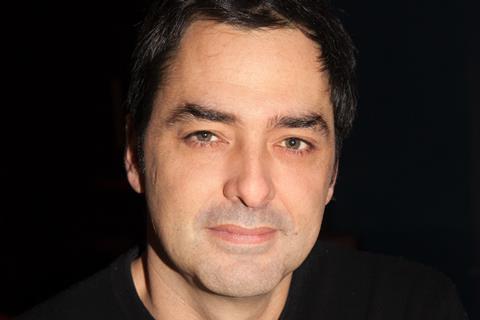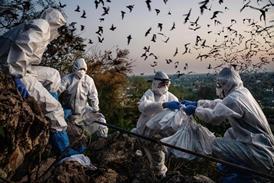
Charles Gillibert started producing short films when he was 17 and today his name has become synonymous with auteur cinema across the globe.
After a stint at mk2, Gillibert founded production banner CG Cinéma in 2013, with many of his films going on to premiere and win prizes at top festivals including Olivier Assayas’ Summer Hours, Abbas Kiarostami’s Certified Copy and, more recently, Leos Carax’s Annette.
Gillibert recently acquired Les Films du Losange and now serves as president of the legendary French production, distribution and sales banner with its library of auteur-driven titles. Gillibert is being honoured at the upcoming American French Film Festival (October 11-16) in Los Angeles.
What is your office like?
The two companies, CG Cinéma and Les Films du Losange, currently cohabit adjoining spaces so there’s a real collective emulation. My door is always open and I walk around a lot. The decor is as uncluttered as possible to counterbalance the influx of projects we’re always working on.
What is the first thing you do when you arrive in your office each day?
Have a chat over coffee with the first people to arrive, and if I’m alone I read the newspapers. My typical breakfast is espresso.
What was your first job in the film industry?
I produced short films with the independent company I created with Nathanaël Karmitz — who is currently managing mk2 [as chairman] — when we were 17.
Who do you look up to in the industry, and why?
Artists, and in particular those who have unfailing artistic integrity. This requires a certain distance from money and competition, but it does not exclude ambition. It’s even harder at a time when the concept of what it means to be an artist is being challenged in our industry.
Who helped you most when you were first starting out?
Olivier Assayas. He saw me as a feature-film producer whose opinion mattered, and I believed him.
What is your favourite festival and why?
Cannes is incomparable. The fact it has managed to preserve its international influence and its impact on the market while keeping the mise‑en-scène as the main focus is a small miracle renewed every year.
What’s the biggest professional mistake you have made?
There have been several. Usually it happens just after a success or when I have committed to a project for the wrong reasons. In these cases when nothing goes well, you have to hold on and then bail. I have never regretted saying no, but I have regretted some yeses.
What was your favourite film growing up?
As a child, I saw a lot of movies on television from John Ford, Sergio Leone; Italian films like Ettore Scola’s Down And Dirty and films by Jean Renoir; plus Frankenstein, Nosferatu and King Kong. I remember the ceremonial aspect of it all — being in the family room before the film started, the intermissions decided on by mutual agreement with my brother and sister, and the fact the television was high-quality and did a real editorial job in presenting the films.
With whom would you most like to take a meeting?
In our industry, I talk to most of the people I’m interested in. If I had the power to have a meeting in a heartbeat, I would turn to political and economic leaders to wake them up and put people back at the centre of our concerns.
What is the biggest challenge facing the business?
Forgetting that the cinema, in addition to and even before being an industry, is an art.
What job would you do if you didn’t work in film?
I would coach a high-level sports team if I could. I would like that.
What book are you reading?
Lawrence Durrell & Henry Miller: A Private Correspondence.
What’s the one TV series or film that everyone should watch this year?
I enjoyed Yellowstone this year — from the landscapes to Kevin Costner’s composure. For a movie, Mia Hansen-Love’s One Fine Morning or James Gray’s Armageddon Time.
What do you do to relax?
Walk in the streets of Paris.
Where do you go to unwind?
The mountains in the south of France.
Who would play you in the biopic of your life and who would direct?
Lamberto Maggiorani filmed by Arnaud Desplechin.

























No comments yet